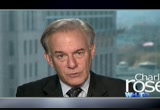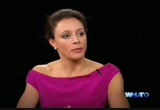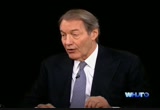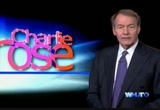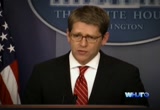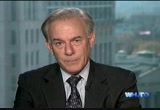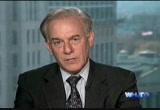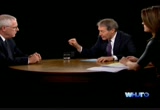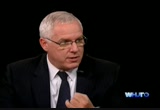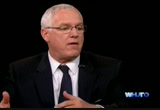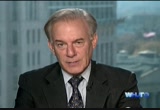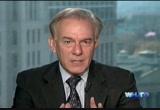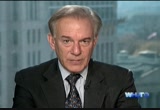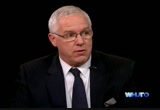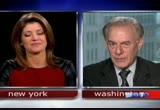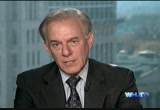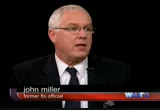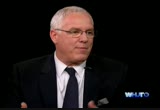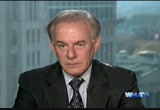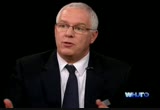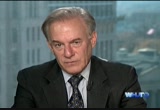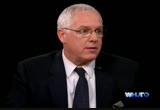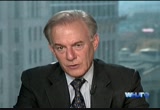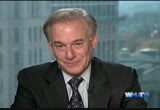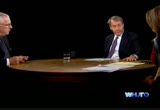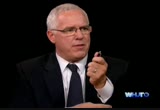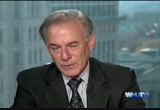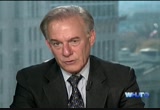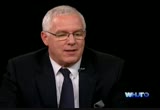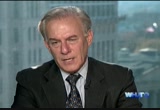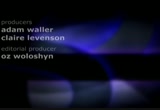tv Charlie Rose WHUT November 14, 2012 10:00am-11:00am EST
10:00 am
martha raddatz and a norah o'donnell. >> he watch his reputation so well but he allowed paula broadwell all of this access. all of us had access to general petraeus over the years when he wants us around and tell us something. but this was different. he really allowed her to go everywhere with him. he talked to her all the time. i've talked to many aides, they were concerned about it in afghanistan. they were concerned how it looked, the optics of having this woman all the time. they described her as gushy and inappropriate talking about his thoughts. you've seen her on several programs over the last week. and things she was saying about him. that made them uncomfortable. >> well like martha, i've known him for about a decade, covered him in these war jones. he's a disciplined man, a man
10:01 am
with incredible force of will. as much as we talk about his counterinsurgency doctrine, when i think about what happened in iraq, it was really david petraeus' will power in that battle space in the way he changed people's expectations what was possible, what was striking. so to see a man of that intensity get involved with another very intense person paula broadwell, i'm surprised by the lack of discipline. you can see those two as kind of a match for each other, at least momentarily. >> rose: but first an excerpt from our conversation with the woman in question, paula broadwell when she appeared on this program to promote her book. what was it that you intended to do in the dissertation that resulted in the book. what were you looking for? >> charlie i wanted to use petraeus as a case somebody, somebody that's a maverick within an institution can galvanize institutional change.
10:02 am
i wanted to see what was his specific role in helping to change and update our doctrine, the counterinsurgency doctrine, how he shapes the organization of our fighting forces, the training and equipment of those forces. i proposed to him he would be one of sell case studies and he agreed. >> rose: how is he different. >> i think he's willing to take an idea from anyone whether it's private, a think tank or someone from the private sector or press. he uses this technique called directive telescoping which is a technique commanders use. yeeg e-mail, he would go on battle field circulations to meet with young lieutenants and captains and try to elicit their feedback without the senior officers there. anyone who has a good idea including what was working in iraq at the time, and he was division commander could share it with him and he would take those lessons and incorporate them back in the unit and the organization would adapt. >> rose: as we know he's the
10:03 am
architect of the surge along with the awakening led to some success in iraq. when you look at that, that sort of what he did in iraq, he also had a special relationship with george bush. what was it? >> he was pretty close with the president. and he had a frequent contact with him via video teleconference from iraq. in fact the two call each other good personal friends. i think, of you can juxtapose that with his relationship with this president in that when they really first it was senator obama and petraeus was in iraq. obama was opposed to that war. he called it the war of choice afghan a war of necessity. they traveled throughout iraq and i think there was tension between them. over the course of sell years and i tried to document it in the book their relationship comes full board to the other side. not like his relationship with bush but they're pretty close
10:04 am
now and i think the president's excited to have him on his team and you can probably call him an obama guy. >> rose: there was a time when the president first went to meet him there, that there was some fetch between the two of them. >> to meet him in iraq. >> rose: yes. >> there was some tension because i don't think the president, senator obama at the time really believed what we were doing and the surge could work and was opposed to it. petraeus thought it was working and there was statistics and metrics to show what we were doing was showing progress. >> rose: and then he came home. >> petraeus came home. he came home from iraq that's right and went to central command after that. this is what he calls his favorite, his best assignment was really again a broadening experience for him at his senior rank. as you know central command has 20 different countries and includes a lot of what we are looking right now which prepared him for the afghanistan job and really well for the cia job. he's dealing with heads of state, administers of defense and intelligence officials he
10:05 am
dealt with. >> rose: he's not going to be chairman of the joint chiefs a job he might have wished for in the culmination of his military career. how did he take that. >> he was told by second gates in 2010 he wasn't considered. gates came out to check the war and came back and met with petraeus in his office and said you're the key to our expectations, you being the force and the progress and the surge. but i have bad news. you're not being considered. and it stung. he really felt that you know he had stepped down. >> rose: he felt he earned it. >> he felt he earned it, he thought he should be considered but he had mixed feelings actual actually about this position and he thought about other positions he would be interested in military. specifically the cia. he thought about keeping the union form on and going to the cia. he proposed that to second gats having liked the idea because he served there before. >> rose: as director. >> right exactly. he took it back to the president
10:06 am
and the president and petraeus didn't talk about it until march and the president said he would like the idea but you have to take off the uniform. he felt that was the best place for him. he felt he wouldn't get the chair position. >> rose: why did he think that. >> he wasn't interested in the chairman of chief at the army position or the other position gates offered which was supreme allied commander of europe. those appealed to him earlier but somehow he felt that he, they are prestiges positions but felt he had been there kind of done that. in some sense he was frustration with coalition management even though he's good at it and he felt that nato's not going to change all these countries are drawing down on their defense budgets. he prides himself on being a war fighter as much as i call him a professor. he really wanted to stay in the arena. the c it a he felt was the best place for that. >> rose: what does he want to do for the cia. >> he loves it and i think he wants to stay there for a long
10:07 am
time. he looked at the military like a system, like a clock with cranks. i think he looked at the intelligence community that way and being a commander he knows intelligence drives the operation. >> rose: is it just improving efficiencies here and there or is it a wholesale change of the culture there. >> no. he doesn't come in with an intent. my understanding is he doesn't come in with an intent to change the whole culture. >> rose: what is the most important thing you think you learned from him about leadership whether it's a military leader, a corporate leader, a political leader? >> it's very simple and i would say attitude is most important quality you can have. 90% of how things go is your attitude. 10% is chance and he really believes that. he's had many huddles in his life. nobody thinks that because look at his career. there are many assignments where people thought he was put out to
10:08 am
pasture and didn't get his first choice. like fort leavenworth, how he used that to change. people that he was being sensitive to the cia put him to pasture and kept him from running for office. he's excited to be there and loves the work force. he's a professor at heart and there are a lot of intellect actual cerebral folks thinking a lot about problems. he's pretty happy where he's at. >> rose: david ignatius, martha raddatz, norah o'donnell and john miller when we continue.
10:09 am
10:10 am
job he has done in afghanistan. at the request of the secretary of defense, the president has put on hold general allen numb naig as a supreme allied commander of europe pending the investigation of mr. alan's conduct. the president remains fully supporting our troops and partners in afghanistan who general allen continues to lead as he has done so ably over the year. the president was certainly surprised when he was informed about the situation regarding general petraeus on thursday. he greatly appreciates general petraeus' remarkable service to his country both in uniform and at the cia. as he said in his statement, his heart, his thoughts and prayers go out to both general petraeus and holly petraeus at this time. he's focused on his policy agenda. and he has confidence in the
10:11 am
acting director at the cia and he has confidence in the military to carry out the various missions he has asked them to carry out. >> rose: give me that man that is not passion slave and i will wear him at my heart's court. general david pa contemporaneous and general john allen has all the e periences of a greek tragedy, following their every move, david petraeus resigned as director of cia in friday after revelations of an affair with his official biographer paula broadwell. a woman named joe kelly had complained to the fbi with a series of harassing e-mails, they were trailed back to paula broadwell who saw kelly as a rival. reports 20,000 e-mails between kelly and john allen. they have been handed over to the pentagon where they are being analyzed. i interviewed general petraeus and general alan several times.
10:12 am
paula broadwell joined me for a conversation early this year. joining me from washington d.c., davidic nake a column else for "the washington post" and martha raddatz a senior affairs correspondent with abc news. two cbs colleagues, norah o'donnell my cohost and john miller correspondent at cbs news who is frequently with me on cbs this morning. i'm please to do have all of them here. we'll be joined by norah and john in just a moment. martha tell me about general petraeus. do you know him. what is it about this story that surprises you most? >> well, i have known general petraeus and covered him in war zones for about a decade and what surprised me most is he seems like a man who is so disciplined and so careful about his image and about his reputation that it was jaw dropping to me when i first
10:13 am
heard it. >> rose: so the question is what didn't you understand about him? >> well, i mean i may not understand everything about him now but i was surprised that he would allow this i guess failure of discipline. he really does guard his reputation so well. he watch the people who are around him. but he granted paula broadwell this unprecedent the act sessments we've had access to general petraeus throughout the years when he wants us around, when he wants to tell us something. this was different. he really allowed her to go everywhere with him, he talked to her all the time. i talked to many aids they were concerned about it. in afghanistan they were concerned how it looked, about the optics having this young woman around him all the time. they described her as gushy, they described her as inappropriate because she was talk big his thoughts. you've seen her on several programs over the last week. and things she was saying about
10:14 am
him. that made them uncomfortable. now general petraeus says nothing happened in afghanistan. i still think we have to wait and see about that. under military law under the uniform military code of justice, he could actually face prosecution for adultery in the military and also charlie, he can be called back to active duty did they found they wanted to do that. i doubt that would happen, unless there was something beyond that. but that is certainly something he has very carefully told his surrogates in the last few days to say this did not happen until he retired from the army. >> rose: david, what would you add to general petraeus, a man you also know well. >> well like martha, i've known him for about a decade. and covered him in these war zones. did find him a disciplined man, a man with an incredible force of will. as much as we talked about his counterinsurgency doctrine, when
10:15 am
i think about what happened in iraq, it was really david petraeus' will power, his domination of that battle space in a way in which he changed people's expectations of what was possible was striking. to see a man of that intensity get involved with another very intense person, paula broadwell, you can see those two as a match for each other at least momentarily. i have met paula broadwell when he was commander three years ago. she was just beginning work on this project, this biography that was originally a dissertation she was writing. she asked if she could interview me and did so at some length for more than an hour about general petraeus, what i knew about him as a journalist and june of lat year she was on her way and the
10:16 am
staff was an which is about her, an scious about the demands she placed on them and on general petraeus. there was something that was odd there. i come back to the way you started this broadcast which is this kind of classic. it's shakespearean, it's greek. i think of leo tolstoy to writes about great people who are caught up in the tentacles of love. it's a story about a great person who achieved genuinely great things in his life turning out to be very human under that exterior that was so prominent. every one of us has an image of david petraeus with all those medals on his chest and it turns out he was a human being. as weak as many of us maybe weaker than some. >> charlie one thing we've got to talk about here too is the number of deployments petraeus had. he spent the majority of the last ten years, more than five of those years in war zones.
10:17 am
that takes a toll on a person. a couple years ago i remember interviewing him in iraq and i asked him about his rock-star status then and he said it is like having an extra load in my rucksack. he said sometimes he looked at himself and felt he was looking at someone he didn't know. i think that really does take a toll. david and i were talking a little buy before the program. a couple years ago when i visited dave petraeus i thought he had really changed. he was very difficult to deal with. so difficult in fact that when i went to combat outpost with him, he wouldn't look at me, he wouldn't talk to me, he was very snippy about talking to me about whatever i wanted to talk about at the time. so much so that i asked not to fly back in the same helicopter with him because he was so you been pleasant. that was so unlike him. that was september of 2010 but that was not the dave petraeus i first met. >> rose: i'm pleased to be joined by my colleagues from cbs
10:18 am
this morning, john miller and norah o'donnell. martha you were beginning to say i wanted you to talk about general john allen because there has been as we taped this proto a statement by the whitehouse by jay carney the president continues at this time to stand behind general allen well me about the allen aspect of this story. >> i think it's very very different than the aspect of general petraeus. i may be naive but i don't think anything untoward went on between john allen and jill kelly. i've been told by someone very close to general allen that he and his wife were friends with jill kelly and her husband and that absolutely there was no sex. the e-mails that you're talking about and documents and they say there are 20 or 30,000, this person very close to general allen said there were actually hundreds of actual e-mails and they came out with all the ccs to have all these documents. but there were things like hey
10:19 am
general allen i saw you on tv today. and he would write back and say thanks, sweetheart, thanks dear. so they may have sounded flirty to someone just reading them but they insist they were just friends. i think general allen has been entanged in this. it's very bad timing. his e-mails were found on jill kelly's computer and of course she went to the fbi because she got those anonymous e-mails they traced to broadwell. general kelly, i mean general allen i'm so confused. general allen i am told al giet an anonymous e-mail that they traced to paula broadwell. he told jill kelly about that e-mail because he was so concerned because it painted jill kelly as this saw deduct trust and said look out for jill kelly and those were traced to paula broadwell according to officials. i think this general allen thing is different from general pa contemporaneous but general pa
10:20 am
contemporaneous' infidelity has got allen up in this point. >> rose: that may mean he has somebody's back. >> information as well. >> general allen is still the commanding general in afghanistan so i think it would be unusual for the man to undermine the man who is still in charge of 68,000 troops in afghanistan. martha is right they are describing these e-mails hundreds of e-mails between general allen and jill kelly as flirtatious in nature. general allen insists he did not have a sexual relationship with jill kelly who is a socialite known who host parties at her house in tampa. also hosted the pa trace family and they were known to visit socially with the petraeus family in washington. this is now in love square if you will. there wasn't necessarily love between all of them but the connection is growing all around. things that concern people on capitol hill what was the
10:21 am
consent of these e-mails because hundreds of e-mails is still a lot. martha describes people at the pentagon pea are saying these are mostly e-mails from jill kelly to the general praising him for being on television, social typ as many as 10-11 e-mails a day. >> rose: just to bring the audience at home if you haven't been following this as closely as my four friends have, who is jill kelly, how did she get involved and what's the connection of the fbi? and what has the fbi done so far? >> so jill kelly starts out in the story as the victim. she's reporting a crime to the f built i'm getting these to the fbi or to a friend. >> the way she gets to the fbi she communicates with a friend who she meets at a fbi commune a event. hey do you remember me, we were in touch can you look at somebody to look at this.
10:22 am
he brings her to the cyber squd and they say where is this going to lead not knowing it was going of going to lead to the general's and so on. that's who jill kelly in the context of this case. who she is in the larger world is a tampa socialite married to a prominent although much lower profile and quiet radiologist from the moffett cancer center who was in the military community. she was on the social roster, she was on the socom that's special operations command social roster. she jumped with the parajumpers in a tan done jump. she attended the admiral's parties and affairs and so on. that's who she is in that context. >> rose: so she went to the cyber whatever the name was and then they began to look at her e-mails and who she received e-mails from and from that they
10:23 am
found e-mails having to do with general john allen. >> right one of the ways you do a case, all right let's see who is sending the harassing e-mails. what other e-mails accounts do they and you all of them going back a couple years to establish a pattern of activity. you also get jill kelly's e-mails to say let's see all of the e-mails coming in there and apparently in going through those something rose to the level of concern that said before the general, general allen goes through a confirmation process, we want to give those to dog to have a look at. now the thing that mystifies me is why then the department of defense at 2:00 in the morning releases on panetta's plane in the middle of a trip we received tens of thousands of e-mails about general allen and we're looking into it. so i think there's something more there that either we don't understand or that they jumped the gun on. >> rose: let me go to david. paula broadwell you said you met her. tell me more about her and where she stands and when do you
10:24 am
think, is there anything about her story or general petraeus' story that you have questions about? >> well, there are so many questions,o many things that we still don't know about this. paula broadwell was an attractive very fit person of quite striking physical presence. she and general petraeus famously liked to run together. she was a woman who in her 30's when she was having two children also managed to compete in triathalons. that's a person of real determination and discipline. she was strong-willed. what surprised people around general petraeus was she was a smart person but she was not intellectually gifted. general petraeus could have had any biographer in the world practically try to write his story with a kind of access that paula broadwell had. it was mystifying that he had
10:25 am
given that access to this person whose principle intellectual achievement had been a masters from the harvard kennedy school. not to slight that but she was not in the league of arthur schlessinger. suddenly she had everything. i remember when she was interviewing me she had just gone over everything like every week of general petraeus' career and command. i just would make one observation about what john was saying a moment ago. the ways in which this story seems to jump the tracks and take down careers, the moments in which people are afraid it's going to become political and that they have to protect themselves and their principles by putting out information. so i do think the trigger event for an investigation of general petraeus that was basically winding down. they had decided there really
10:26 am
wasn't evidence of breach of national security or classified information. i think the fbi was winding it down. when, apparently one of the fbi people first got involved with joe kelly on his own decided he would go to the republicans and congress because he thought the democrats might suppress this. that ended up to going to eric kantor the house majority leader who talked to the director of the fbi muller and the fbi then talked to director of national -- jim clacker and that's what led to him summoning petraeus going to the whitehouse and the whole thing coming out. the same way with the pentagon e-mails on allen they thought it was about to blow politically so to protect themselves cover themselves they decided to put something out. you have to wonder about that. people shouldn't jump so quicky because they think something is going to be public. >> rose: martha has to leave. so martha a woman said if a man will have one affairs, he'll
10:27 am
have many affairs. does this cast any kind of questions about general petraeus because this very disciplined man in the face of this very interesting woman who clearly had great ambition for herself. >> kind of the female version of dave petraeus. >> rose: yes, okay, okay. but what about it. i mean somebody said if man has one aware or if a woman has one affair she has many affairs. >> well i think there's still maybe stuff out there and i think a lot of people who know dave petraeus think there might be but we have no proof of this whatsoever. if he was the cia director it wouldn't be big a deal. being cia director that really makes this very very serious. >> rose: and being cia director you would think that he would understand e-mails more than anyone. >> yes. well not just e-mails but risking something like that. i mean he says this started when he was cia director meaning the
10:28 am
man has 24 hour protection. i have no idea how they carried this on whatsoever. but i think people will probably look back but as i said at the beginning, i don't think even if the military found out that something was happening in afghanistan and the only way they could really find that out is through explicit e-mails or through petraeus or broadwell. i think it very remote that the military would press charges. >> rose: do you think it's likely that his friends went to him and said what are you doin, general, i'm your friend. >> yes. i think some of his aides went to him and said look general petraeus it doesn't look good the access you're giving this woman. but those very same aides said they had no idea anything was going on. they were just as stunned as anyone they just didn't like the way they looked. >> rose: i know you have to run, martha. thank you for joining us. see you soon. >> you bet. >> rose: let me talk about
10:29 am
the fbi side about this and who should have known what, john. a lot of people listen to this and say you got to tell the president. and you said before with norah and me the fbi followed what their general procedure was. >> that's right. so the fbi practice on this is basically, and it will be, it will change in every case. people have to have a fairly open mind about this. they say if we reexamine this and everybody thinks we got this wrong, you know, maybe we got it wrong. but we looked in the book and said you got to notify the congressional committee about significant intelligence activities. this was a stalking case involving a woman in florida who turns out to be a biographer of a general who turns out to be the cia director and the affair appears to be over and they're getting through all that but what they say is we don't see a chinese agent here, we don't see classified documents coming from the cia director to her. so they said before we went and told anybody whether it was
10:30 am
congress or the whitehouse, we want to know what are we telling them. this story was still coming together and we, it didn't seem like the crime of the century to us. we thought we had a pretty good has not gull on it. >> i think there's always a benefit of doubt given to someone like general petraeus who has had an honorable career in the military for 37 years. we respect expad meyer people from the military, i'm from a military family. there are still a lot of questions out there. lots of journalists can ask and law enforcements is asking. when that statement is made and has been through all of the newspaper articles that the fbi has pretty much concluded there was no transfer of classified information from general petraeus to paula broadwell. i'm not convinced we know the full answers to that yet. why then did the fbi spend four hours at paula broadwell's home last night. point number two, how is it general pa contemporaneous and paula broadwell were able to share a private e-mail account where they saved e-mails in draft folders and the other person logged in to that same
10:31 am
log in so they could read the same e-mails in the draft folder. it is a common technique used by other people in our own government as well as terrorists use that. it's a way to keep your e-mail off the public server that your company or g mail or yahoo or whoever it is could look at. the other thing that interested me was a nugget inside some of "the washington post" reporting today which is that petraeus told broadwell this summer to stop sending the harassing e-mails to kelly because kelly had told petraeus that she found out where she was getting those e-mails from. that was about the time according to "the washington post" petraeus' warning came about the same time petraeus ended the affair with broadwell. the suggestion being kelly is the reason that petraeus and broad well broke up. i mean just the sordid details. petraeus knew that broadwell was sending the threatening e-mails and he's the cia director. i mean there's just too much
10:32 am
there. there's just too much there about what's going on. >> rose: david? >> i just would caution norah on one detail in that account, which is that it was petraeus that ended the affair, whatever it ended. >> this is in "the washington post," i'm just quoting "the washington post." >> i understand that. >> rose: david's newspaper. >> it's my newspaper but i didn't write that story. it's my understanding that that may actually not be accurate. but that the ending may have been prompted by broadwell. the truth is we don't know about that but my information is a little different from what was printed in the paper. >> rose: go ahead, continue david. >> well i think, you know, the issue that would concern the fbi and would make this something significant is whether our cia director, the person who knows more secrets than anyone else in
10:33 am
the u.s. government isn't in any way under a threat, under pressure from somebody else such that he would be vulnerable, you know, blackmail overstatements it. but what's he under, under duress in some way during the time he had this undisclosed relationship with a very willful person. i'm sure that that's the core of what they were looking at. and in a sense, david petraeus became free of that pressure and that compulsion in the moment that that was revealed. and so i think people have raised a question once that was done if he's not now in the military and there's not a uniform code of military justice issue, was it necessary for him to resign as cia director. jim clacker the director of national intelligence thought the answer was yes and i think that was for two reasons. first younger people at the cia are told if you get involved in anything compromising, if you have an affair have you to disclose and he and i didn't and
10:34 am
with this event double standard. and the second argument was you may not be a gentleman now but you used to be but you ought to live by the rules general officers live by. if you look at it through that optic. when the fbi sends this to the director of national intelligence, general clacker who i used to work for, they don't know what he's going to do with it and they take no position on it. they wonder is he going to put it in a drawer and say in a couple weeks when the dust settles i'll address this with dave petraeus. is he going to send it over and say you have to quit over this, is he going to give him a counseling session i wouldn't engage in this kind of conduct again. in some ways if there's any such thing as a secret in washington, this may have never surfaced absent a criminal charge. >> rose: isn't that what general petraeus could assumed. >> as your friend and as leader of the intelligence community, this is what i think you should
10:35 am
do. but it's funny because you look at the flip side of this, this is a story that might have never happened. you still have to take that wild card about well eric kantor would follow up on it and who the fbi approached after being cut off from information about the progress of the case. he went to a former sheriff who is now a member of congress in washington and said i think somebody needs to look into this, there may be a cover up here. in fact the only cover up that was going on is they were covering up from him because they felt he was passing information possibly back to jill kelly. >> rose: when it got to the fbi and up to muller, would he immediately have told the attorney general? >> he could have or he might not have, it depended how the case developed. as far as the whitehouse notification that wouldn't have come from the fbi that would have to go from the fbi to the dent of justice to the whitehouse. so there will be a real question
10:36 am
here. this is not the fbi operational side but the political side, the real question will be what did the fbi tell the attorney general and what was justice's call on what to do with that information. and that question hasn't really surfaced yet but when it does it will certainly royal. >> sharyl atkinson reported on cbs this morning there are members of congress now demanding a joint committee to investigate this. if there are enough members of on congress hungry to do that that will likely hospital which will mean a full on colonoscopy on this store. there are so many details to be learned. >> rose: david, in cases like this when we do these looking back journalists do and looking who said what when, there are always questions that come up like this. who should have when they first heard this, said the president has to know this?
10:37 am
>> well, i think john raised this issue. as it comes up, the chain of command and the fbi, the fbi embarked into the inquiry of the cia director. if i were the director, i would properly go to the person i work for and that's the attorney general holder and give him an idea what's going on. and then the question is, would holder have gone to his boss and commander in chief. it's hard for me to imagine that chain just stopping with something as sensational as an ongoing investigation of david petraeus cia director just stopping. and so i think the question whether it was some inkling that the whitehouse, through a formal channel, informal channel before the election that people just kind of sat on and then it went in a more formal chain of
10:38 am
command way, they acted instantly once he heard about it. was there something before then, as john said a minute ago, in this full scale investigation that will be a key question. >> i agree about why it didn't make its way up the chain of command. however, in some of these cases there are people inside the whitehouse that make sure the president is inoculated from learning, exactly. so usually it's the whitehouse chief of staff who does that. i think there's a question about whether there was someone in the whitehouse that knew about it and there was a political decision given that this was two weeks, a week out from the whitehouse a couple days whenever then they knew about it, to not tell the president for possible deniability for that very reason which could certainly have happened. >> rose: this is what's interesting. john miller sitting here with us worked for general clacker, the dni as they say. >> i was the deputy of foreign analysis. >> rose: you were there. >> yes. >> rose: you know these people.
10:39 am
and what is the biggest question you have now at this stage of this story? >> you know, i wonder, you know, charlie, i still wonder if this had gone into the drawer and they said don't have an affair again. it's a good thing no information was compromised and no laws were broken but now you see how risky that kind of behavior it is. if it really would have gone away ... >> and it's clear petraeus thought that. he thought that this -- >> he was going to benghazi and running things as usual. which is what you don whe you're under pressure you try to act that everything is normal and okay. i still wonder if this would have passed. >> rose: david you know general petraeus and you also know the cia. what's the feeling over there at langley? >> oh, i think this has been a traumatic period. you know the worst thing for an organization that's supposed to be collecting secret intelligence is you know when you're talking 24/7 about their
10:40 am
business, i mean the people they're dealing with around the world, kind of scratch their heads and wonder what's going o i worry in periods when the cia in effect has a sign that says kick me on its backside. we're entering another one of those periods. that makes it tough to run the place. they're going to need to get a new director, whether that's continuation of the current acting director michael morell or someone else but they need to settle down and get back to the work of spying because this is, we all know this is really a dangerous world and if you have a cia out of commission waiting for congressional investigations to be over, we're all in trouble. >> rose: is brennan the likely choice. >> brennan has been such a loyal devoted person for the president it is said the president turns to him before these really hard decisions about drawing the tax
10:41 am
or bin laden. what do you think. brennan says i really like this job i suspect you'll get it. word is he's tired and he would just as soon leave. people looking at a broader list on the assumption that brennan will back away and won't want it. but i really don't know. i shouldn't pretend i know because i don't. >> i would argue if brennan is tired, he's tired because that job the one he's in at the whitehouse is a 23-hour a day job. during that hour you got to keep your blackberry on even if you're asleep. the c cia job in many ways migt be less stressful for him. there's more staff support and more people to help you there. you've got thousands of employees and a chain of command. when you're in smaller in in-- in in-runs -- >> general petraeus was not a perfect fit inside the agency. part of it was cultural
10:42 am
difference from coming inside the military being a general to whether it was wanting his suit laid out in a certain way wanting his coffee a certain way which usually general's aides take care of and that is standard procedure inside the military and very different inside the cia where in the military you call people by the rank and in the cia you call them more formal. it doesn't mean they weren't li morell or brennan it might be something different. >> rose: was he doing a good job. >> it was an awkward fit, he got off to a rocky start. being used to the kind of commanding control that a four star general has and the big step the general has he gives an order getting a salute getting it done. the cia isn't like that. they're contrarian.
10:43 am
the whole point is wait a minute boss i'm not sure that's right. and it took him a while to get that wristal and you know my sense is that as the months grew he enjoyed the job more and he also got better and more comfortable at it. but it was never a perfect fit. he was born to command those armies like he did and iran and afghanistan. >> talking with people leading up to the election certainly even when petraeus' name was once again floated as a potential vice president pick for mitt romney and people said no way. there's a little bit of a political aspect to this which is known president obama when he was senator obama and petraeus first met, they did not like one another. and i don't think that people in fact the whitehouse fully trusted general petraeus. it doesn't mean anything in this whole thing but it wasn't like they were -- >> that got better. >> it did. >> rose: absolutely. >> norah that did get better. the white house really
10:44 am
mistrusted him and they thought he would be grand standing used to having high profile. the fact he shut up and stayed off the talk shows and basically broke off the highest media profile ever. >> look it was floated several weeks ago he was going to go to princeton. i was told by close people that petraeus wasn't going to last there long. ers going to move on, there were discussions of people in that agency. that was a conversation i have and also it was floated he wanted the princeton job. >> i'll defer to david ignatius on this but look at the way he got the job which is they called him in to say look you're not getting the joint chief's job. >> rose: it wasn't they, it was bob gates secretary of defense. >> i think he talks to the president and says if there's something else you want, let us know and he says i'd like to be director of the cia, which i think took people aback. but i think what you see here is a great blurring between the
10:45 am
department of defense and the intelligence community. the more they use intelligence and drones and special forces the more their mission -- >> rose: military aspect of the cia. >> david petraeus looked at the cia as an extension of his ml tree career. this is more about how the future is going to be fought. >> rose: david and norah and john my understanding is he loved the job. david? >> i think charlie, that he denied up loving the job. he loved the science technology toys that the cia director uniquely has. i think he did take the job because it was the next great challenge when he couldn't be chairman of the joint chiefs. when i think about petraeus, the person, the interesting question for me is after this terrible fall, this big scandal, you know, he'll have a period of rehabilitation. but what's the next challenge that this smart ambitious guy
10:46 am
will try to take on. some place like princeton still want him, will another university want him. on the morning that this broke, i actually spent an e-mail saying he was likely to leave following all what norah was saying. i don't know the answer. what he would have done if he had another couple weeks. they didn't say anything. when finally the story broke said sorry i couldn't get back to you earlier but you understand. >> rose: i also have been told, we're all talking about speculation what people said if they wanted it more than someone else but he did not have at the cia the kind of support system around him that gave him a certain confidence that protected him in certain ways and he obviously now the question is raised about paula. he was living in washington going home for dinner doing a lot of different things than he done before but he didn't have that protective cocoon that he had had all of his military
10:47 am
life. >> he didn't have the large staff. he loved to show off the communications vehicle that he had them build for him that they said mr. director we can't do that. he said yes you can and then they would figure out a way to do it. it was a very different life. he was less protected, you could say he began to unwind a little bit. who knows what happened but he certainly was loosening up a little bit. >> rose: let me tie this together. john allen we believe what at this moment? >> well that he will continue for the time being as commandser in afghanistan while the pentagon inspector general looking at these e-mails people inside the pentagon close to general allen saying they are innocuous and flirtatioushich is behavior unbecoming an officer and put him in some trouble according to the military justice. for now they're looking into it. >> rose: if i said this is a human tragedy, would you all
10:48 am
agree. >> i would say this is a profound human tragedy. and i think if you look at in life, if we had rewind and we said gee, you know, would i have send those letters to ms. kelly and if i was ms. kelly and was now under this kind of scrutiny, would i have marched into the fbi and said take care of this person. and if i were general petraeus and if i were, and you see when you start to pull that thread you don't know what's going to unravel. it's like the thread on the hem of your coat and you say it's bothering me and you yank it off and the whole coat unraffles and there's a pile on the floor. that's what we're seeing and it's destroying over life it seems to touch here. it's sad because we're losing a lot of talent over stuff that just isn't worth it on either end. on what they got out of doing it or what it cost them for reporting it or how it's affecting the people's lives who thought it was going to go one way for them and another way for
10:49 am
someone else. it's just too much and too sad. >> rose: i wanted to make this not like it's an obituary for anybody in that kind of tone but how good a general was david petraeus, david ignatius? >> well, i think history will record his generalship in baghdad as extraordinary. he took a position that even the military was ready to different up on and with proceed bush's support that turned around significantly. the long term benefits are hard to judge. afghanistan less success, less really to work with. to come back to your point charlie, it's a terrible personal tragedy. it's also a real loss to the country. it doesn't have enough first-rate leaders to understand national security that it can afford to just blow one off and not feel that loss. >> rose: someone told me that ought to know that the president did not have petraeus to go to
10:50 am
after stan mcchrystal. the decision was made he had to go. that having petraeus there made a big difference for the president. >> petraeus instantly, he was in a senior position as commander and it tells you something about petraeus as maybe his an tight for the challenge or maybe glutton for punishment that he instantly said yes when he was asked would he go replace mcchrystal and that was pretty typical of him. he did like to fight and loved that leadership. >> rose: where does this story, what is the next turn of the wheel here. >> i like to think about the enlisted members of the military and the officers who serve under these generals. it is military is a, everyone follows the chain of command and is taught to follow orders. and many members of the military are suffering. they are really suffering because their families have been at war for ten years, they have family members who have been wounded in this car and they
10:51 am
have suffers tremendously. this is very hard for people like general petraeus who was very well regarded, hero to many in the military, general allen who still the u.s. nato commanding general in afghanistan with 70,000 troops there. this is very hard on the military when these personal things which is a distraction to a very difficult mission and dangerous mission. >> rose: they have no way getting involved in one way or the other. >> yes they will be involved and there will be more details. at a time when too the president is trying to wind down the war in afghanistan. that is something that will be, you know, there are some members of congress who don't approve of that or the way it will be done. so this is difficult but i'm trying to think of those who serve under these generals who, you know, who are out there now and learning about this on the limited e-mail devices and other things that they have about this, what they would probably think is silliness going on in washington while they're on the front lines. >> rose: there was a rush to
10:52 am
opinion with respect to john allen when they first learned this. what about jill kelly? >> well, i mean the jill kelly piece of this is going to be very interesting. because forget about the investigation part of it. it's now she has become a public entity and the media's going to kind of dig through and pour through every aspect. >> rose: and the attorneys will be there to protect her. >> that's right but that will only go so far. so i think we're going to have a couple household names that nobody ever heard of a week ago for a while. >> rose: how has the media done in your eyes. >> i think the media has been the way the media is. which is a little too shrill, a little too hysterical. so you know if you flip on your cable tv, people are talking about but there was an fbi investigation into the direct, well no there wasn't, investigation into a woman
10:53 am
sending threatening notes to another woman. there was this and that and sendly the terms start to blur and the locomotive takes off by it self. i think it's good to have discussions like this where we can kind of put it back in some realistic perspective. >> john told me something that was really important which was when he was in the fbi he would say all kinds of members of congress where there would be inquiry made. people can make inquiry. it doesn't mean their reputation should be sullied. they will ask questions and move on. >> members of congress say they want to be notified any time anybody's name in the cabinet were circulated for investigation. any time we open a criminal case on a member of congress, should we send out a notice to everybody about that. i think you'll change that opinion very quickly. >> rose: before we go, david, and all of you, the benghazi investigation where does it stand and where are we in this?
10:54 am
>> well the departure of petraeus takes the most high voltage personality out of the benghazi investigation but it will have a lot of intensity anyway. there are important questions at the under. some people about benghazi think the political noise goes away with it. the big question is why was the cia relying on militia that were untrained and as it turned out utterly unreliable for back all security support has to be examined because similar arrangements exist in other places around the world. the question why the cia was responsible for security at the consulate in benghazi.
10:55 am
the this. cia's job is to gather information. we blame them for not jumping sooner when they get the 9/11 button. that's not their job and i hope that's examined in this investigation as well. >> rose: david ignatius, thank you. norah o'donnell, i'll see you in the morning. john miller, the same. >> see you then. >> rose: thank you for joining us. see you next time. captioning sponsored by rose communications captioned by media access group at wgbh access.wgbh.org
10:59 am
126 Views
IN COLLECTIONS
WHUT (Howard University Television) Television Archive
Television Archive  Television Archive News Search Service
Television Archive News Search Service  The Chin Grimes TV News Archive
The Chin Grimes TV News Archive 
Uploaded by TV Archive on

 Live Music Archive
Live Music Archive Librivox Free Audio
Librivox Free Audio Metropolitan Museum
Metropolitan Museum Cleveland Museum of Art
Cleveland Museum of Art Internet Arcade
Internet Arcade Console Living Room
Console Living Room Books to Borrow
Books to Borrow Open Library
Open Library TV News
TV News Understanding 9/11
Understanding 9/11
